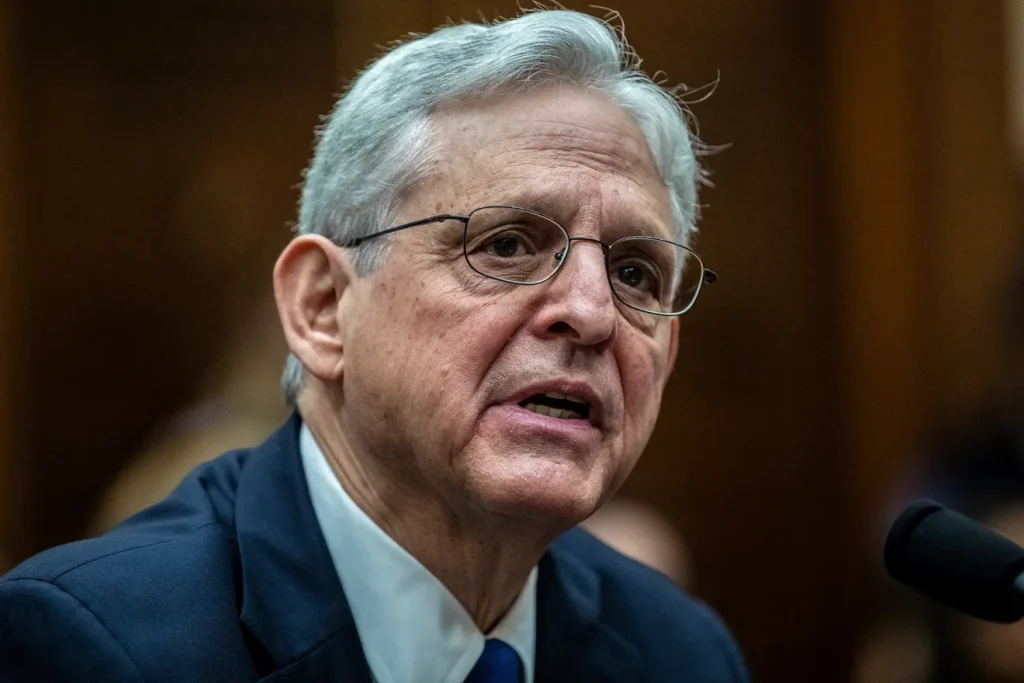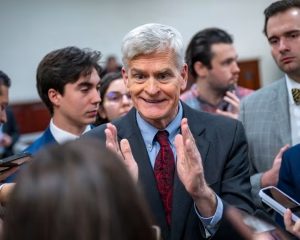US charges against Hamas leaders aren’t just symbolic. Expert says they may have teeth

While U.S. Justice Department terrorism charges unsealed Tuesday against six senior Hamas leaders may seem symbolic, an extremism expert told USA TODAY they could actually carry some bite by limiting where they can travel and increasing the chances of their arrest.
Israel is “always looking for us to help them really muddy somebody up by charging them in Israel and then charging them in the United States,” said Jeffrey Breinholt, a George Washington University law lecturer who worked on counterterrorism at the Justice Department for 25 years. “It makes their world a lot smaller.”
The criminal charges don’t just mean the defendants could be arrested if they come to the United States. The U.S. has extradition agreements with various other countries that mean the Hamas leaders face more exposure more broadly.
“It’s to apprehend and to show solidarity with the Israelis,” Breinholt said of the charges.
A Justice Department official said Tuesday that the charges were filed under seal Feb. 1 so the U.S. would be ready to take charged defendants into custody. However, the July 31 death of one of them, Hamas political leader Ismail Haniyeh, meant there was less reason to keep the charges private, the official said.
The complaint describes a history of attacks by Hamas, including its Oct. 7, 2023 attack that left more than 1,000 dead, including 43 American citizens by the time the complaint was filed.
Since then, tens of thousands of Palestinians have been killed in the Israel-Hamas war, according to the Palestinian Health Ministry. Israeli-American Hersh Goldberg-Polin was one of six hostages taken by Hamas whose bodies were recovered by Israel’s military in the past week.
How can the U.S. charge Hamas leaders for crimes outside the U.S.?
The Justice Department charged the Hamas leaders under a series of U.S. conspiracy statutes dealing with terrorism, murdering Americans, bombing a public place, and using weapons of mass destruction.
Breinholt said there is nothing new about bringing terrorism-related charges for crimes outside the country: it’s a question of whether the language of the statute shows the legislation was meant to apply to overseas conduct.
“Material support, as well as a murder of American citizens abroad, are both considered extraterritorial in nature, and so they’re on fair footing to charge somebody who might never have set foot in the United States,” he said.
There are various traditional justifications for the U.S. to criminalize foreign, terrorism-related actions, Breinholt said, including if the victims are American, if the activity affects international commerce, or if the defendant was either found or brought to the United States.
What does this mean in practice?
Even though the Hamas leaders charged do not live in the U.S., these types of charges can still result in an arrest, or limit their mobility.
“Not everybody wants to go to Israel, but everybody wants to go to the United States. I mean, they want to go to Disney World or Vegas, and so that’s a real deterrent if you were indicted in the U.S.,” Breitholt said.
The U.S. was able to have Russian arms dealer and so-called “Merchant of Death” Viktor Bout arrested in Thailand in March 2008 based on a Manhattan federal criminal complaint, after luring him to that country in a sting operation.
Bout was later convicted on of similar crimes to those in the Hamas complaint, including conspiring to kill U.S. nationals and conspiring to provide material support to a designated foreign terrorist organization. Bout was able to return to Russia as part of a prisoner swap in exchange for U.S. basketball player Britney Griner.
“It might be low odds right now that we’d ever get them, but you never know,” Breinholt said.
Who was charged and are they alive?
All six Hamas leaders were alive on Feb. 1, when the government filed the criminal complaint at the Manhattan federal trial court.
Since then, as many as three may have been killed:
- Ismail Haniyeh, who headed Hamas’ political wing starting in 2017. He was killed July 31 during a visit to Tehran for the inauguration of Iran’s new president, Masoud Pezeshkian. Haniyeh is accused of praising attacks on Israeli civilians, including ones by children.
- Mohammed Deif, who is referred to in the complaint as Mohammed Al-Masri and headed Hamas’ al-Qassam Brigades military wing starting in about 2002. Israel said Aug. 1 it had confirmed Deif was killed in southern Gaza in July by an airstrike. However, Hamas official Osama Hamdan told the Associated Press Aug. 13 that Deif is still alive. Deif allegedly organized Hamas’ strategy during terrorist attacks dating back years.
- Marwan Issa, who was Deif’s deputy starting in about 2007 and was killed in Gaza by a March airstrike, the U.S. government confirmed. Less than seven months before the Oct. 7 attack, he warned in an interview that “the coming days will be full of events,” according to the complaint.
The other defendants are:
- Yahya Sinwar, who has headed Hamas in Gaza since about 2017. He helped found the al-Qassam Brigades and previously stated that “Americans will pay the price” for U.S. support of Israel, according to the complaint.
- Khaled Meshaal, who headed Hamas’ political wing from about 2004 to 2017 and went on to head an office dealing with Hamas’ presence outside Gaza and the West Bank. He is based principally in Qatar and has supervised assassination operations, bombings, and killing Israeli settlers, according to the complaint.
- Ali Baraka, who heads Hamas’ foreign relations wing and is based principally in Lebanon, according to the complaint. He has allegedly taken credit for Hamas attacks on Israeli civilians in Tel Aviv and Haifa.
Has the Justice Department done this before?
It’s not the first time the Justice Department has charged Hamas associates with terrorism-related crimes. The Justice Department brought one of the same charges – conspiring to provide material support for a designated foreign terrorist organization – against U.S. charity Holy Land Foundation for Relief and Development and several of its leaders about 20 years ago. After a mistrial and a retrial, the defendants were convicted and the individuals were each sentenced to many years in prison.
The same charge has been successfully brought against many other defendants, such as U.S. citizen David Headley for the help he provided to U.S.-designated Pakistani terrorist organization Lashkar-e-Taiba in its planning of the 2008 Mumbai attacks that killed 175 people and injured hundreds more. He was sentenced to 35 years in prison for that and other crimes.
Breinholt said U.S. prosecutors have had successful outcomes in material support cases involving al-Qaida and the Islamic State in the past 10 years that have further strengthened their hand in bringing more of those charges.


